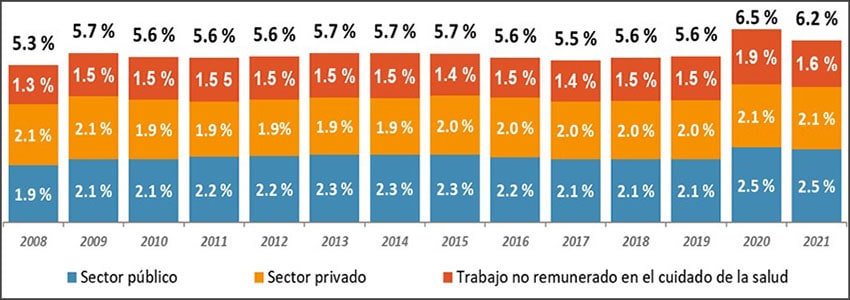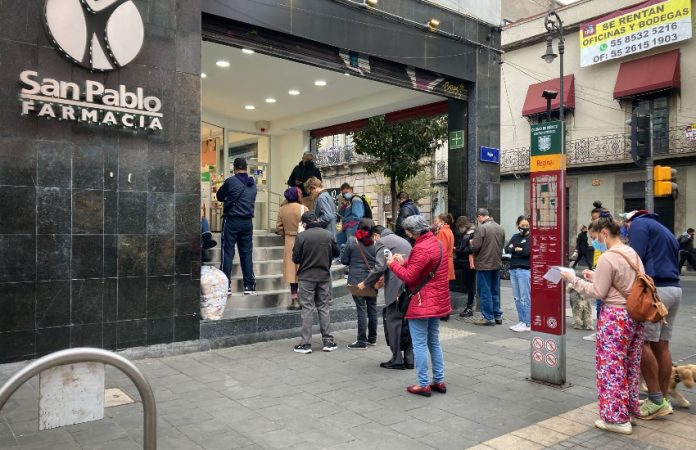Mexico’s household healthcare spending reached more than 1 trillion pesos last year, equivalent to nearly 60% of all health spending in 2021, according to data published by the national statistics agency, INEGI.
The figures INEGI presented included unpaid labor related to health, including providing care for the sick and preventative care, which were calculated to be equivalent to 1.6% of Gross Domestic Product (GDP). According to the report, women provided 70.2% of the unpaid care and men 29.8%. In some states, the inequity is higher. In Oaxaca, for example, women take on 90% of unpaid labor related to healthcare.
Total healthcare spending dropped from 6.5% of the country’s GDP in 2020, to 6.2% last year. Public healthcare expenditure represented only 2.5% of GDP. As a comparison, the Organization for Economic Co-operation and Development (OECD) estimates U.S. total spending on healthcare was 17.8% of national GDP in 2021, the highest level of the 38 member countries. Of this, 2.9% was labeled as “voluntary” private health expenditure.
“Of the consumption of goods and services for healthcare carried out by households, spending on medicines and other goods concentrated 50.7% of the total,” INEGI said in its report, the Satellite Account of Mexico’s Health Sector (CSSSM) 2021.

“This is followed by medical consultations and support goods and services — which include, for example, health insurance premiums — at 14.8%; hospital services, at 14%; and other services associated with healthcare at 5.7%.”
There are 2.4 million paid jobs in the medical field, which represents 6.1% of the national economy. Of these positions, 31.2% are in hospitals, 20% in medical offices, 15.3% in related services, 10.1% in the manufacturing of medicines and other medical supplies, and 8.2% in public health administration institutions.
INEGI’s data on healthcare expenditure calls into question President López Obrador’s recent statements that Mexico will have a universal public healthcare system similar to Denmark’s by 2023.
“We are going to have a public health system like Denmark’s, where medical care and medications are free. In Denmark, they have policies that were completely unattainable in Mexico, because there is no corruption like there was in Mexico,” he said during his morning press conference on Tuesday.
In Denmark, public spending represented 86% of the total amount spent in the healthcare sector in 2021, according to OECD data, and health spending is 10.8% of the country’s GDP.

“Something they call a welfare state has been established and that is what we are seeking for Mexico, that people have security from birth until death,” the president said.
He also stated that patients will no longer have to wait hours or days to seek emergency care, or wait months to schedule a surgery.
“It will not be like this, and it is my commitment and I am going to win again, because they do not know the enormous satisfaction and joy that beating conservatives produces, because it is beating individualism and selfishness.”
With reports by Reforma, INEGI and El Universal
